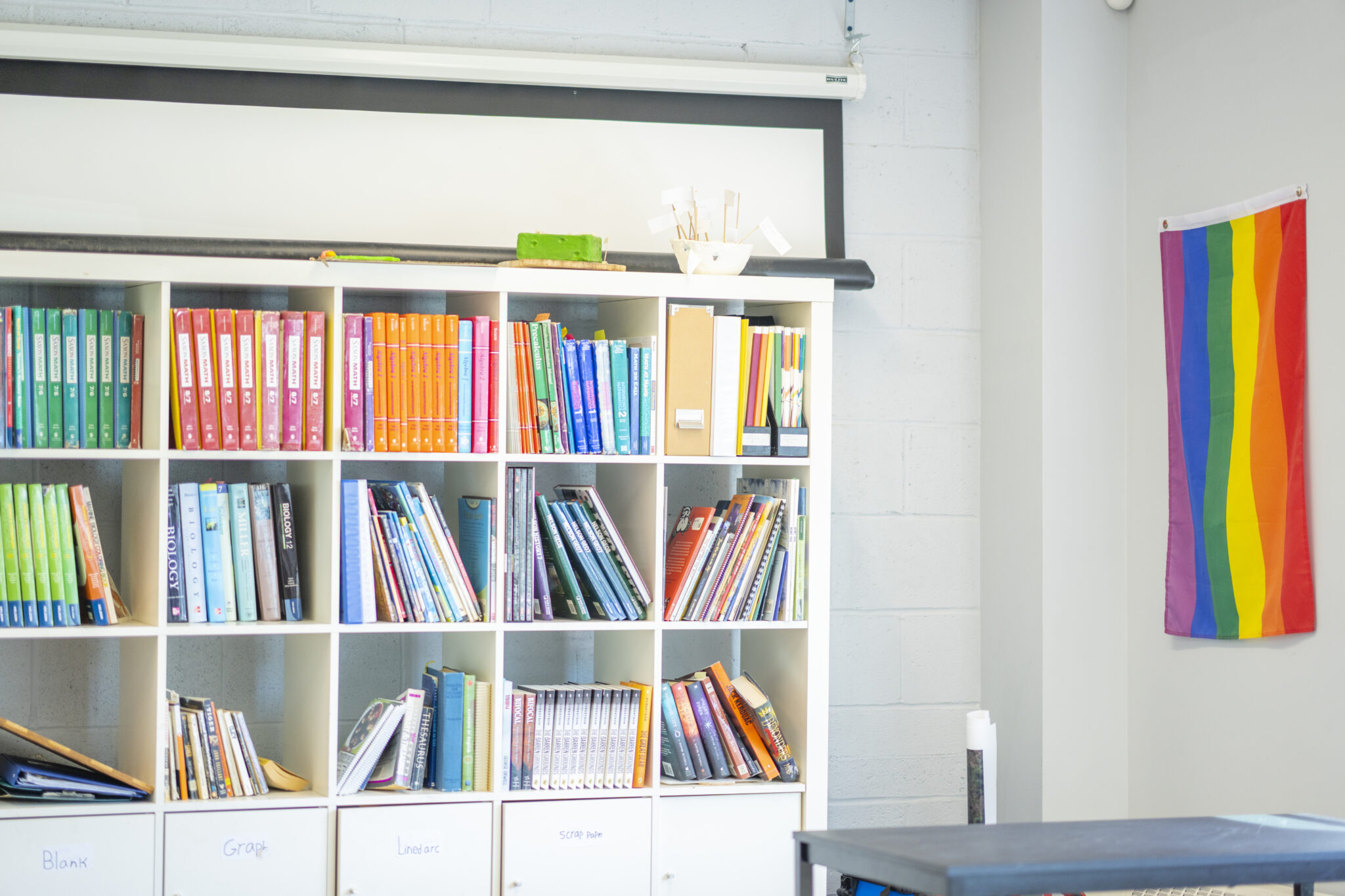Non-binary teacher shuts down LGBTQ+ ‘indoctrination’ classroom fears with kid-friendly answers
Sign up for more LGBTQ+ news and updates at TrueQueer.
In recent years, the United States has been embroiled in a battle over LGBTQ+ rights in schools, with several states introducing anti-LGBTQ+ bills that aim to restrict discussions and visibility of LGBTQ+ identities. From Florida’s controversial “don’t say gay” bill to Virginia’s anti-trans policies, and Utah’s attempt to ban Pride flags in classrooms, the education system has become a battleground for LGBTQ+ rights.
Amidst this hostile environment, one teacher has emerged as a beacon of hope and acceptance. Desmond Fambrini, a non-binary and bisexual learning specialist in the San Francisco Bay Area, California, has taken to social media to address fears of LGBTQ+ “indoctrination” in the classroom. Fambrini’s approach is simple yet effective – providing child-friendly answers to common questions about their identity and sexual orientation.
In a TikTok video shared by Fambrini, they address a series of questions that many educators may fear hearing from their students. When asked, “Are you a boy or a girl?”, Fambrini calmly responds, “I was born a boy, good question. Back to math though.” This response not only affirms Fambrini’s gender identity but also redirects the conversation back to the academic subject at hand.
Similarly, when asked why they wear makeup, Fambrini explains, “I like the way it makes me look, pretty simple. [It’s] the same reason why other people wear it.” By offering straightforward and relatable explanations, Fambrini demystifies concepts of gender expression and identity for their students.
Moreover, Fambrini sets boundaries when asked personal questions about their relationships or appearance. When questioned about their marital status or romantic preferences, Fambrini firmly states, “I can’t answer that. That’s personal information, it doesn’t have to do with school.” This response not only upholds their right to privacy but also reinforces the importance of respecting boundaries in educational settings.
In response to a question about wearing makeup, Fambrini emphasizes personal choice and parental involvement, stating, “I’m not allowed to give you makeup at school, that’s up to you and your parents.” By highlighting the role of consent and parental guidance in personal expression, Fambrini promotes a message of empowerment and autonomy for their students.
As the questions continue, Fambrini addresses inquiries about their racial background and preferred title. When asked why their makeup makes them appear tan, Fambrini proudly asserts, “I’m actually Black. I’m Italian and Nigerian, good question.” This response not only celebrates Fambrini’s diverse heritage but also educates students about the intersectionality of identity.
Regarding their preferred title, Fambrini simplifies the matter by stating, “You can just call me Desmond. But in the end, I can’t control what you call me.” This flexible approach allows students to address Fambrini respectfully while also acknowledging individual preferences.
In conclusion, Fambrini dispels misconceptions about LGBTQ+ “indoctrination” in schools by emphasizing the simplicity of honest and open communication with students. They assert, “The conversations that you’re so worried about are very, very easy, and very, very fast.” By normalizing discussions about gender identity and sexual orientation, Fambrini promotes inclusivity and understanding in educational settings.
Ultimately, Fambrini’s example serves as a testament to the power of education in fostering acceptance and diversity. By providing child-friendly answers to challenging questions about LGBTQ+ identities, they pave the way for a more inclusive and equitable learning environment. As debates over LGBTQ+ rights continue to unfold in schools across the country, educators like Fambrini offer a ray of hope for progress and change.
Follow us on: Facebook for more LGBTQ+ news and updates at TrueQueer.
indoctrination
![]()

